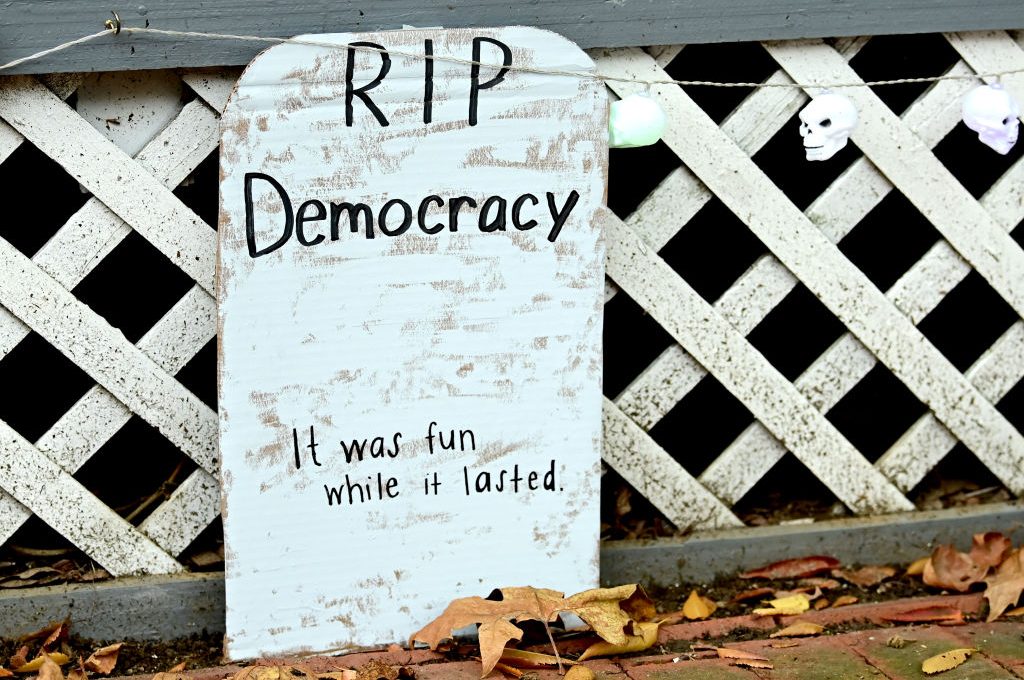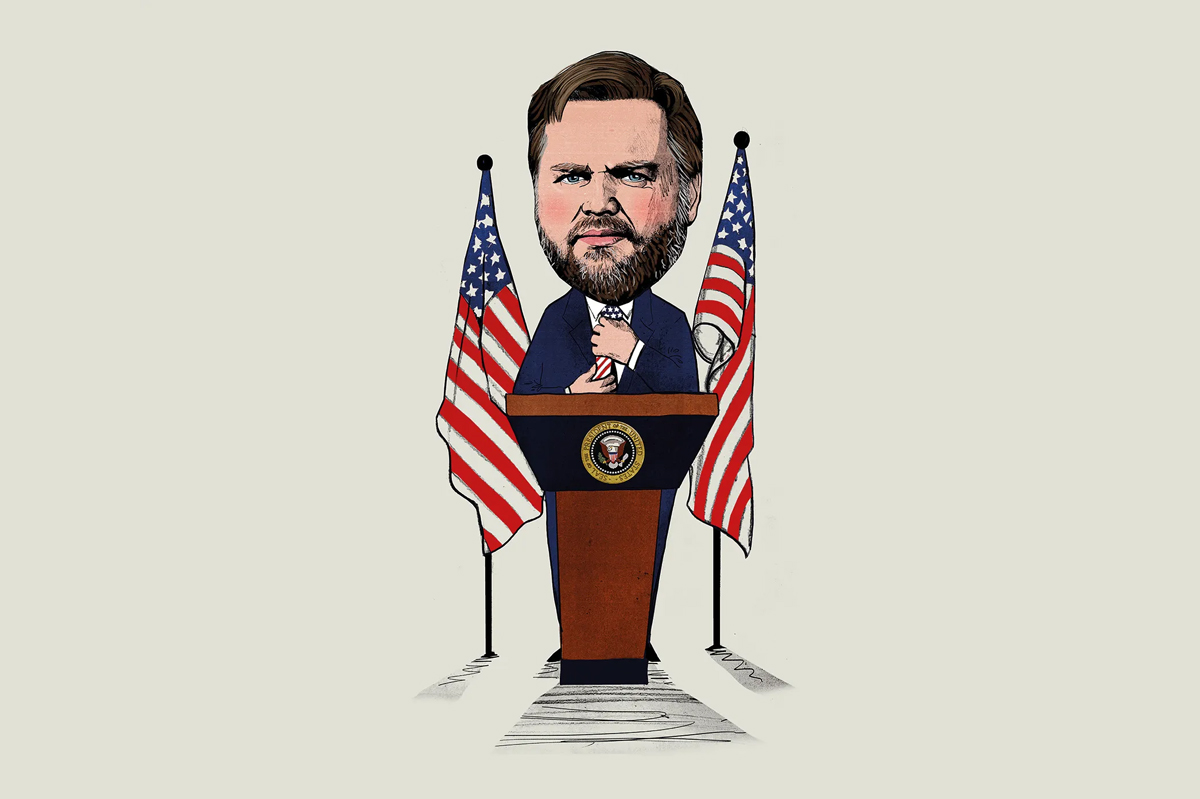In an Appalachian high school, the kids were set the task of writing about Europeans as part of their history curriculum.
When the day came to hand in their work, the teacher took one boy aside and expressed displeasure about the sheer lack of effort he had put into his homework. “You have had three days, Bubba. And all you have written is ‘Europeans are bastards.’ Would you please take your work back and expand it considerably by tomorrow.” The following day the teacher approached Bubba for the finished article – and he took from the child an essay which read, simply: “All Europeans are bastards.”
I was told that joke when I was about 12 years old – so the timing makes it impossible for Bubba to have been J.D. Vance, even if the sentiment and indeed the location would seem to be bang on the money. Further, the generality of that viewpoint holds strong among a vast, probably majority, swath of Americans – by and large the ones who voted for Donald Trump in November. The ones in the middle of the country; the ones who believe in God; the ones who farm for a living, the ones who sometimes incorporate snakes into their worship procedures. The ones who abide in mountains or on endless plains or in delta swamps. It is a state of mind best expressed by that sadly late Republican Party Reptile P.J. O’Rourke, who once proclaimed: “I’d rather be a junkie in a New York City jail than king, queen, and jack of all Europeans. We eat little countries like this for breakfast and shit them out before lunch.”
Cheers, Pat. But we kid ourselves if we think most Americans think very differently. I was struck by the surprise and dismay engendered in Britain by those hilariously leaked conversations between Vance and the Defense Secretary, Pete Hegseth, and the sudden realization: they actually hate us, don’t they?
Yup, they do. And our failure to step up with a respectable amount of defense spending is only a small part of the reason why, although it is subtly linked with all the other aversions. The irony is that the Americans who hate us most are those who are the closest to us genetically.
It is not the affluent and culturally diverse New Yorkers, Angelenos and San Franciscans who bear the biggest animus. They can be seen with their bumbags – excuse me, fanny packs – and stupid clothes in Venice, Paris, Brussels and London, lapping up the culture and sense of history which they are avid to share. They abide by – largely – what have become, for better or worse, our values. The ones who can’t stand us are the heirs to Scottish, Irish and English settlers in the South and the Midwest (and in the north Midwest, those descended from Swedes and Germans). The ones largely untainted by that most modern of delights, diversity. The ones like the boy called Waylon who comes from Arkansas and took part in Channel 4’s School Swap program and thus ended up in an inner-city high school in Brixton, London, and who opined that while diversity was all well and good, he kinda thought it had its limits, y’all.
They hate us because we seem to them, and perhaps actually are, effete, cowardly, inert, affected, debauched, presumptuous and, latterly, insignificant. More importantly, we seem to stand for everything which is in essence the antithesis of the American Dream, to which many of them still cleave. We do not believe that we will find salvation in hard work and entrepreneurial spirit and capitalism – as a continent we find that view chimeric and deluding and believe that capitalism is not to be trusted, to be endlessly assuaged by what we imagine is kindness. We are, further, godless. Middle Americans are not. Some may remember the Scopes Monkey trial, in which creationism was pitted against Darwinism, as a case of European enlightenment values versus God, and they knew whose side they were on. Indeed, while we are inclined to see many of the progressive idiocies which currently plague our societies as having sprung fully formed from the artificial wombs of American campuses, they see it as deriving from Europe, from our values.
And of course they are right: wokeism may have been eagerly embraced in the US and Canada and the Antipodes, but it derives directly from the Europe of Marx and Gramsci and Foucault. We believe nobody should be judged. They know that everybody, in the end, is judged and that there’s no harm in doing a spot of judging themselves.
It is our weakness which they most despise. Our frailty and fallibility. We needed to be rescued in two world wars and yet afterwards, when the US thought there was a war worth fighting, were dragged only reluctantly to the battlefield – and we stayed wholly aloof from that whole business in Vietnam, which we wrote off as anticommunist paranoia and reflexive American imperialism. They do not like our predilection for welfare payments generally and are thus even more averse to paying for Europe’s safety – perhaps particularly when the foe we have identified shares an awful lot of their singularly illiberal values.
The Americans spend 3.4 percent of their GDP on defense: a fraction of what we spend on welfare benefits, but it adds up to twice as much as European NATO members spend on their own security. If you are living in Arkansas or Mississippi, where the average monthly wage is about $4,500, wouldn’t you resent your government spending such vast amounts looking after those hoity-toity Yerpeans who “can’t” (or won’t) foot the bill for themselves?
Given that it is our merchant shipping that is most at risk from the Yemeni rebels, shouldn’t we have dug a little deeper into our pockets and sorted them out? There are, when you look at it, very good reasons why we Brits should not be loved by the people across the Atlantic whose largesse we have taken for granted for so long.
This article was originally published in The Spectator’s May 2025 World edition.


























Leave a Reply